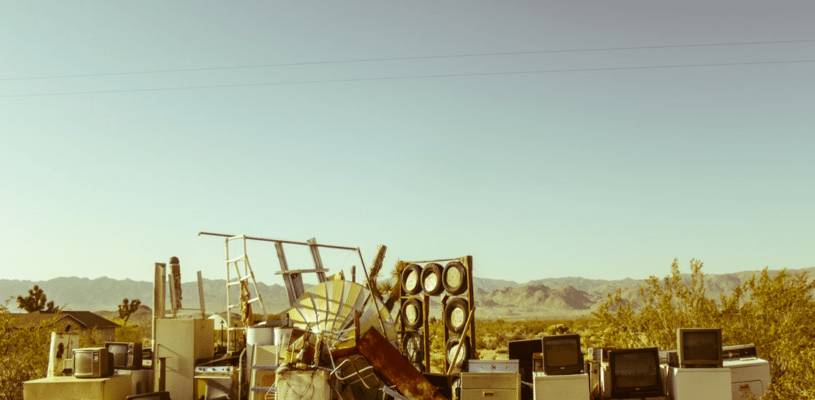You walk into your house and you’re hit by it—the suffocating presence of stuff. Piles of old magazines, unused gym equipment, mysterious boxes filled with who-knows-what.
They clutter not just your living space, but also your mind, becoming a constant, looming stressor. The mere thought of sorting through it is overwhelming, almost paralyzing.
What if we told you that these feelings aren’t just about the physical mess but also a manifestation of deeper psychological factors?
Oh, and while it may seem like an insurmountable task now, there’s a structured way to go from hoarder to order. A way that might just involve a strategic junk pick up.
Why Do We Hoard?
Emotional Attachments: The Sirens of Stuff
We all hold onto items for sentimental reasons, whether it’s a stuffed animal from childhood or an old love letter. The problem arises when emotional attachment becomes a barrier to letting go, even of things we never use.
Your home ends up like a museum of your life’s highs and lows, filled with objects that may have sentimental value but serve no practical purpose. Holding onto these items can be comforting, but it can also make it difficult to create space for new experiences and relationships.
The Emotional Landmine
Think of each sentimental item as an emotional landmine. On the surface, they seem harmless, buried in drawers or closets, out of sight but never truly out of mind. These emotional landmines can keep you anchored to the past, preventing you from moving forward and enjoying the present.
The Fear of Missing Out (FOMO)
We’re all familiar with FOMO, that nagging sense of potentially missing out on something significant. This feeling isn’t limited to social situations—it extends to our possessions as well. Have you ever kept old cables or chargers “just in case” you might need them?
This kind of precautionary hoarding has us living for hypothetical futures while drowning in clutter today.
Future-Proofing vs. Hoarding
It’s natural to want to be prepared, but there’s a thin line between being resourceful and becoming a hoarder. How many spare USB cables or ancient flip phones do you really need? If you find that your ‘just-in-case’ items are taking up more room than your ‘definitely-needed’ items, it’s a sign you’ve crossed the line.
The Paradox of Choice
In today’s consumer society, we’re often paralyzed by a wealth of options, whether it’s choosing a career or a Netflix series. Now, imagine that feeling, but with every item you’ve ever owned.
The cleanup process can be daunting, not because you have to make a few difficult decisions, but because you have to make hundreds of them. This is why de-cluttering seems like such a mammoth task.
Decisions, Decisions
Every object you touch while cleaning becomes a decision point, creating a cognitive burden. Your brain treats each decision, no matter how trivial, as significant, leading to decision-making fatigue.
By the end of the day, you’re emotionally and mentally drained, which further discourages you from continuing the process.
How Does Clutter Affect Our Minds?
The Toll on Mental Health
Recent studies indicate that clutter can significantly impact our mental health, leading to increased levels of stress and anxiety. It’s a vicious cycle—the more cluttered your space, the more stressed you feel, and the less energy you have to tackle the mess, which leads to even more stress.
Clutter and Cortisol
Research has found that clutter can increase cortisol levels, the stress hormone. High cortisol levels have been linked to a plethora of health issues, including anxiety, depression, digestive problems, and heart disease.
Diminished Productivity
In a cluttered space, your attention is scattered among a multitude of distractions. Each piece of clutter is essentially competing for your brain’s attention. And let’s face it, a messy desk hardly inspires creativity or focus.
A Distraction-Prone Environment
When your work or study space is cluttered, the chances of getting sidetracked increase exponentially. How often have you started cleaning only to find an old magazine or photo album that you absolutely had to look through right then and there? Distractions like these are productivity killers.
Relationship Strains
When it comes to shared spaces, one person’s clutter can easily become another person’s source of stress. Tensions can brew, leading to arguments over whose stuff goes where, and even causing some to question the values and priorities of their cohabitants.
Shared Space, Shared Responsibilities
It’s crucial to remember that in a shared living situation, your clutter isn’t just affecting you; it’s a communal issue. Mismanaged spaces can lead to mismanaged relationships, turning what should be a sanctuary into a battleground.
The Journey to De-Clutter
Baby Steps: The 5-Item Rule
The first step in any journey is often the hardest, and it’s easy to feel overwhelmed when you survey the mountains of stuff you have. To combat this, try the 5-Item Rule. Every day, choose five items to throw away, donate, or keep.
Consistency Over Volume
By consistently removing items—even just five a day—you start to make a dent in the clutter. Over a month, that’s 150 fewer items. Over a year, that’s 1,825 items! It’s a manageable yet effective strategy.
The Four-Box Method
Sorting becomes simpler with the Four-Box Method. Get four large boxes and label them “Keep,” “Trash,” “Donate,” and “Unsure.” As you go through your clutter, assign each item to a box.
Time for Reality Checks
If you notice your “Unsure” box is overflowing, it’s a sign you need to be more decisive. For these items, ask yourself when you last used them and how likely you are to use them in the future. Be brutally honest.
Junk Pick Up: The Lifeline
When you’ve done all you can and still have larger items left over—or just too much stuff—a professional junk pick up service can be a lifesaver. They can remove those cumbersome items you can’t handle alone, like old furniture or broken appliances, relieving you of both the physical and psychological burden.
Trust in the Pros
It’s worth investing in professionals who can quickly and efficiently remove your unwanted items, allowing you to finally breathe in your own space. It’s not merely about removing things; it’s about reclaiming your life and mental well-being.
Conclusion: The Light at the End of the Junk Tunnel
You don’t have to navigate this journey alone. Sometimes, the most therapeutic step is getting rid of all the excess stuff in one go. That’s when it might be time to search for “junk pick up” and make the call. Clearing out your space isn’t just a physical act; it’s a mental cleanse, a reboot for a healthier, happier you.
Black Dog Junk Removal in Charleston understands the psychology behind your clutter. Remodeling, spring cleaning, or moving—whatever your reason, when you can’t put it out with the trash and don’t want to rent a dumpster, it’s time to call us for reliable junk removal services. We’ll load up a half truck or full truck and haul your junk away right away.
Ready to take the first step to reclaim your space—and your peace of mind? Get in touch for an estimate.




